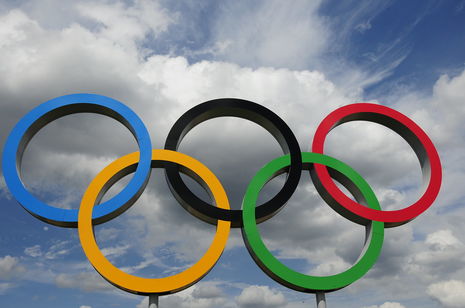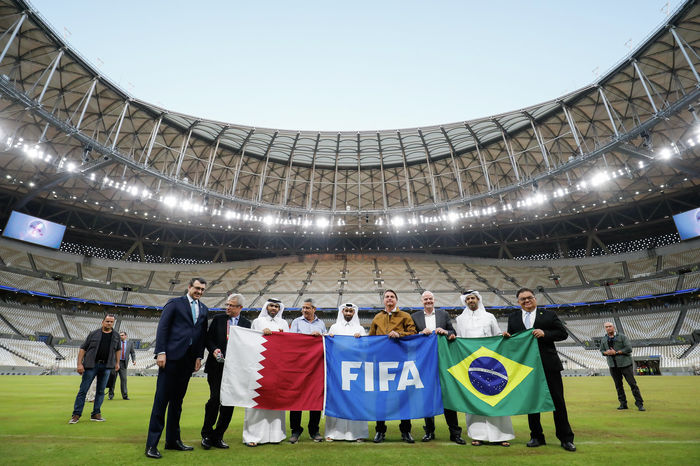The knot between sport and politics is impossible to untie
A year into Russia’s illegal invasion of Ukraine, Charlotte Bardsley argues that the IOC’s attempts at political neutrality are futile

One year since the Russian invasion of Ukraine and with only a year to go until the start of the 2024 Paris Olympics, politics and sport have again hit the headlines. The recent decision by the IOC to “explore a pathway” for the participation of Russian and Belarussian athletes to compete as “neutrals” on the basis: “No athlete should be prevented from competing just because of their passport”, has sparked uproar in the international community. Many countries want a ban on Russian and Belarussian athletes and are even threatening to boycott the Games as a mark of solidarity with Ukraine and of the illegitimacy of Russia’s invasion. The UK Culture Secretary, Lucy Frazer, chaired a 36-nation summit to discuss the IOC’s latest move, with Ukrainian President Volodymyr Zelensky stating that Russia’s actions “cannot be covered up with some pretended neutrality or a white flag”.
Whatever the outcome, this whole predicament has proven one thing. Politics has once again delivered sporting neutrality a knockout blow. The Olympics is an incredible movement, inspiring millions of people through the wonders of sport. However, as much as the IOC likes to fashion itself as a pure and politically neutral entity, and despite its good intentions, the notion that the Olympics can exist outside the realm of politics is a myth. Elite sport is and will always be inherently political.
When we dive into history, politics pervades sport. From the boycott of the 1980 Moscow Olympics over the Soviet invasion of Afghanistan or the terrorist attack during the 1972 Munich Olympics by Black September, the Olympics is inextricably embroiled in political issues. Tommie Smith and John Carlos’ Black Power salute in Mexico 1968 used the Olympics’ global audience to put the spotlight on race and civil rights. Political conflicts have also been mirrored in matches, as with the “Blood in the Water” polo match between Hungary and the USSR in 1956, just weeks after Soviet tanks had supressed the Hungarian uprising. The “Miracle on the Ice” hockey match between the USA and USSR at the 1980 Winter Olympics was a showdown between competing political systems and ideologies.
“Elite sport is and will always be inherently political.”
As we move into the 21st century, sport is still being used to platform political messages. The taking of the knee as a statement against racism, debates about gender and pay, and the exposure of World Cup host Qatar’s human rights abuses and treatment of migrant workers, are just a few examples. Undoubtedly, sport continues to have global political salience. The magnetic attraction between sport and politics is stronger than ever. Living in an era of globalisation, 24/7 mass media and hyper commercialisation, sport transcends everything we do. It has become an understandable metaphor for everyday life, tangible and transplantable to many situations.
Sport is a conduit for the delivery of social and political messages to a massive captive audience due to its immense popularity and global reach. Nations view sport as a political panacea, because hosting a sporting mega event fosters nation building and branding. It facilitates a show of national power, allows for image improvements, provides global prominence and is a way to ingratiate nations into the international community. The global scrutiny this invites can be a double-edged sword. Yet the risk is worth it. More people tune into the Olympics than they do to the UN. For many non-democracies, public legitimacy is conditioned on performance, as seen at Beijing 2008. The Olympic medal table acts as a barometer of state power, enhancing a country’s prestige and boosting nationalistic pride. This is why governments pour money into sport and why Russia went to such extreme lengths as to embark on a state-sponsored doping program to ensure its success at Sochi 2014.
The Olympics couches itself in the idealistic rhetoric of peace, solidarity, and fair play, trying to cleanse itself from the pollution of politics. Yet, sport like any other facet in life is contaminated by politics and to suggest otherwise would be naïve. Whilst the dream of uniting the world under the umbrella of the Olympic Charter is certainly commendable, it does not reflect reality. As much as we want it to, the Olympics cannot transcend politics. Politics has backed the IOC into a corner. Saying nothing or proclaiming to be neutral is itself a political statement. It is obvious that the Olympics is so deeply rooted in the global political game that any denial would be risible.
The tragic reality is that politics and profit take the gold and silver medals whereas sporting performance is relegated to bronze. The Olympics needs politics, and politics needs the Olympics. There is no way around it. Let us not kid ourselves into thinking that the Olympics can ever be apolitical. The knot between sport and politics is impossible to untie.
 Features / Should I stay or should I go? Cambridge students and alumni reflect on how their memories stay with them15 December 2025
Features / Should I stay or should I go? Cambridge students and alumni reflect on how their memories stay with them15 December 2025 News / Cambridge study finds students learn better with notes than AI13 December 2025
News / Cambridge study finds students learn better with notes than AI13 December 2025 Comment / The magic of an eight-week term15 December 2025
Comment / The magic of an eight-week term15 December 2025 News / News In Brief: Michaelmas marriages, monogamous mammals, and messaging manipulation15 December 2025
News / News In Brief: Michaelmas marriages, monogamous mammals, and messaging manipulation15 December 2025 News / Uni Scout and Guide Club affirms trans inclusion 12 December 2025
News / Uni Scout and Guide Club affirms trans inclusion 12 December 2025










